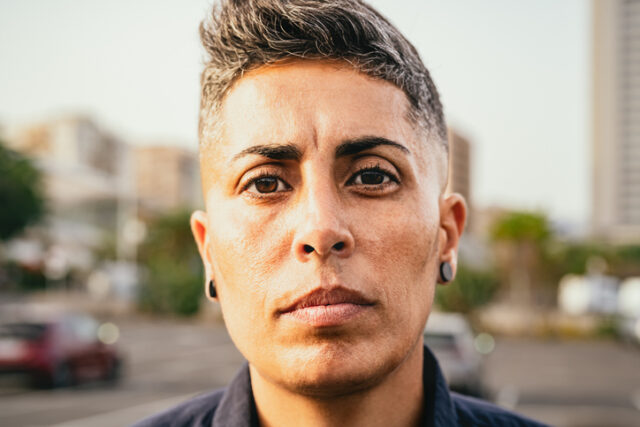Growing up feeling like you were invisible can leave a lasting mark, kind of like a hidden tattoo from childhood. It shapes how we see ourselves and move through the world. Everyone’s experience is different, but some patterns tend to pop up in people who felt unseen as kids. Here are some of the most common traits people like this develop — if this is you, hopefully you feel a little less alone.
1. They become DIY pros.

When no one was there to help you out as a kid, you learned to take care of yourself. You became a resourceful ninja, figuring things out on your own and getting stuff done without asking for help. This can be a total superpower, but it can also make it hard to trust people or ask for a hand when you need it.
2. They’re like human lie detectors.

Feeling invisible often means you become super aware of everything around you. You learned to pick up on tiny hints, know what people need before they ask, and blend in like a chameleon. This superpower of observation is handy in a lot of situations, but it can also make you overthink things or feel like everyone’s watching you.
3. Speaking up? Not their strong suit.

If your voice was ignored as a kid, it can be tough to find it as an adult. You might hold back from sharing your thoughts, opinions, or even asking for what you want. This can lead to feeling like no one’s listening, even when you have awesome things to say.
4. They’re always looking for a little love.

When you grew up feeling unseen, it’s natural to want some recognition and appreciation. You might look for it in achievements, social media likes, or other people’s approval. A little of that is totally normal, but needing too much can lead to unhealthy habits and a feeling of emptiness inside.
5. They’re the ultimate people-pleasers.

Feeling invisible as a kid might have taught you to change your behaviour to make people happy so you’d be seen and accepted. This habit of people-pleasing can stick around, making you put everyone else’s needs before your own and struggling to set healthy boundaries.
6. Rejection is their worst nightmare.

Being overlooked can create a fear of rejection that follows you into adulthood. You might avoid social gatherings, worry far too much about what people think, or bend over backwards to avoid conflict or disapproval. This fear can hold you back from making real connections and chasing your dreams.
7. They have a whole world inside their heads.

When you felt unseen in the real world, you might have created a whole universe inside your own mind, full of thoughts, feelings, and imagination. This can be a wellspring of creativity and self-reflection, but it can also lead to feeling isolated and having trouble connecting with people on a deeper level.
8. They feel everything, for everyone.

Growing up feeling unseen can make you super empathetic to people who are struggling or feeling left out. You might be really tuned into people’s emotions and needs, offering support and understanding even when you’re going through your own tough times.
9. They’re masters of disguise.

Feeling invisible can make you a pro at blending in. You might change your personality or interests depending on who you’re with, trying to fit in and avoid standing out. This can be exhausting, though, and leave you feeling like you don’t even know who you really are.
10. They overthink everything.

When you grew up feeling unseen, your mind might have gone into overdrive trying to figure out how to be noticed or avoid being overlooked. This can lead to overanalysing social interactions, second-guessing your decisions, and constantly worrying about what other people think.
11. They’re drawn to the spotlight (but secretly terrified of it).

It might seem contradictory, but some people who felt invisible as kids crave attention as adults. They might be drawn to careers or hobbies that put them in the spotlight. But deep down, they might still be terrified of being truly seen and judged for who they are.
12. They have a hard time trusting their gut.

If your feelings and opinions were often dismissed as a child, you might have learned to doubt your intuition. You might second-guess yourself constantly, relying on external validation instead of trusting your own instincts.
13. They’re always waiting for the other shoe to drop.

Growing up feeling unseen can create a sense of unease and anticipation of bad things happening. You might always be waiting for the other shoe to drop, expecting rejection or disappointment even when things are going well.
14. They’re fiercely loyal to those who see them.

When someone truly sees and appreciates you, it can feel incredibly special. People who grew up feeling invisible might be fiercely loyal to those who make them feel valued, going above and beyond to maintain those relationships.
15. They’re drawn to creative outlets.

Art, music, writing, or other creative pursuits can be a refuge for those who felt unseen. These outlets offer a way to express yourself, connect with your emotions, and feel seen and heard in a way that wasn’t possible in childhood.
16. They’re often drawn to helping professions.
 Source: Unsplash
Source: Unsplash People who grew up feeling unseen might be drawn to careers where they can help people who are struggling. They might become therapists, social workers, teachers, or mentors, using their own experiences to offer support and guidance.
17. They can be incredibly resilient.

Growing up feeling invisible is tough, but it can also build incredible resilience. You learned to adapt, overcome challenges, and find your own way in the world. This strength can serve you well in all areas of life.
18. They’re still learning to love themselves.
 Source: Unsplash
Source: Unsplash Feeling unseen as a child can leave deep wounds that take time to heal. Learning to love and accept yourself for who you are is a journey, but it’s a journey worth taking. Remember, you are worthy of love, connection, and belonging, just as you are.




